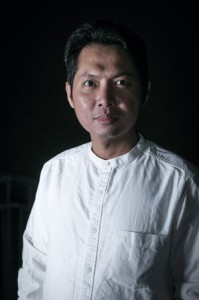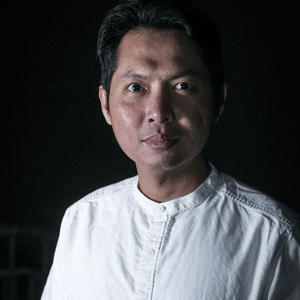The application procedure for the residence permits that non-EU students go through can nowadays take up to several months. This puts international students in difficult situations. Contacting the Migration Agency does not always make matters clearer.
Mochamad Ridwan from Indonesia had already pursued his bachelors in Jönköping, when he started his masters in Finance at LU last September. Because of this he had gone through the process of extending his residence permit several times before without major problems. Last year, however, he had to wait for five months to get his permit extended.

“My former permit had expired at the end of June. I applied in May with the letter of admission from LU, at the Migration Agency (Migrationsverket). When I hadn’t heard anything from them in a while, I started to do a follow-up call monthly,” Mochamad Ridwan says.
“The first time I rang I was told that the person dealing with my case had resigned. In later follow-ups the problem was blamed on the large number of incoming refugees.”
The delay in the procedure could possibly have great consequences for Mochamad Ridwan. Without a residence permit, he would in all probability not be able to enter Sweden again if he would have to leave the country. When Mochamad Ridwan in the beginning of November was invited to attend a seminar in Copenhagen related to his thesis, he was therefore forced to decline, as border controls on trains coming from Denmark had just been introduced that week. A similar problem would have arisen if he had been forced to go home, for example to attend a funeral.
Richard Stenelo, International Director at the Division of External Relations is aware of the problems with delayed residence procedures at the Migration Agency.
“We have had several cases, which always have different details, depending on the person. It causes inconvenience for students: they cannot leave the country, and neither participate in excursions abroad that are part of their study program.”
Right now, the University is working on a national level to find a solution to the issue:
“We are working in all the different commissions and we really hope to find a solution together with the Migration Agency,” Richard Stenelo stays. He can, however, not give an exact prognosis for when the matter will be solved.
Mochamad Ridwan solved his own situation by contacting his program coordinator. With the help of her contacts at the Migration Agency, Mochamad Ridwan suddenly started to receive emails with a reconfirmation of his application and requests for additional documents. Within two weeks, he received his permit.
Asked for an advice for international students that are currently caught in a similarly long procedure, Richard Stenelo doesn’t really have an answer: “It’s a pity, but there is no advice, even though I wish that I could give one. The only thing that they can do is to wait.”
Even though he now has a residence permit, Mochamed Ridwan is disappointed with the way that the Migration Agency has handled his case.
“Sweden is not a customer-friendly country in my view. I paid 1000 SEK for the extension, thinking that I paid for a service. Instead, I got waiting time and uncertainty. It’s not okay that it should take so long and that the delay is blamed on the refugees. At least there should be a maximum amount of days within which an application should be answered.”
He thinks that Sweden should treat its non-EU students better, even if just for economic reasons: “We are the ones paying the tuition fee, we bring international perspectives into the classroom, and we contribute to the Swedish economy by bringing in funds from outside the country, he says.
Article; Paula Dubbink






